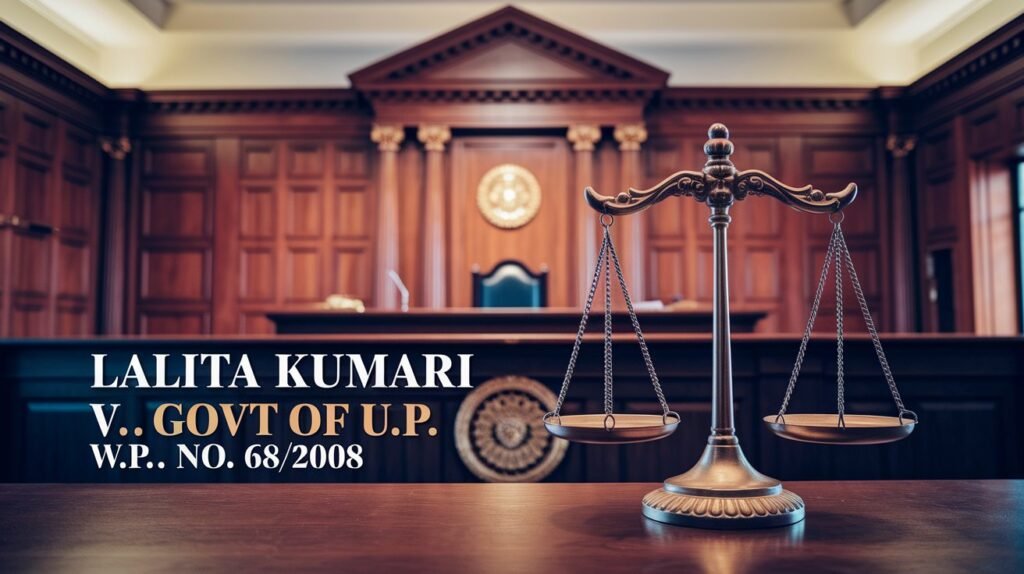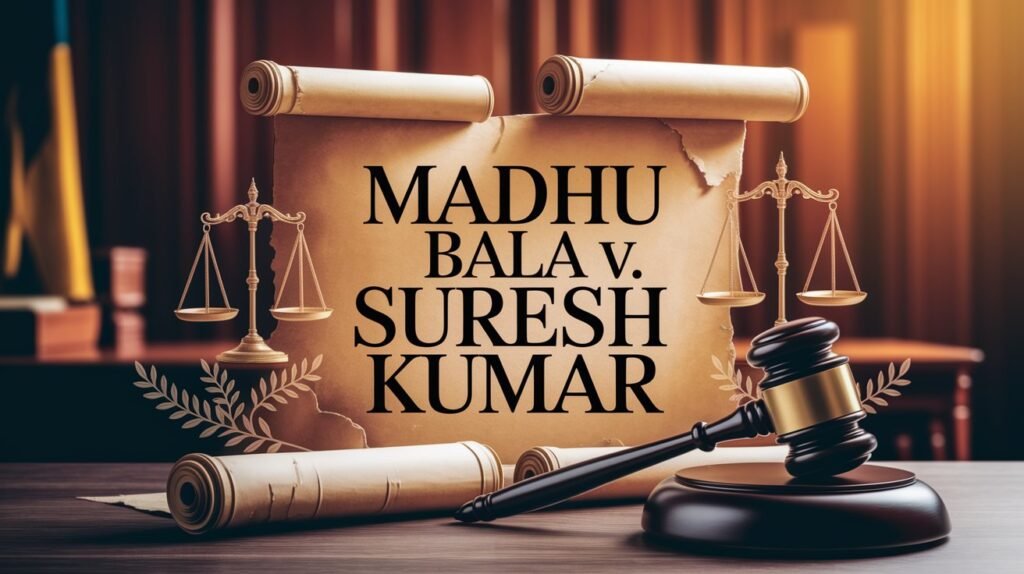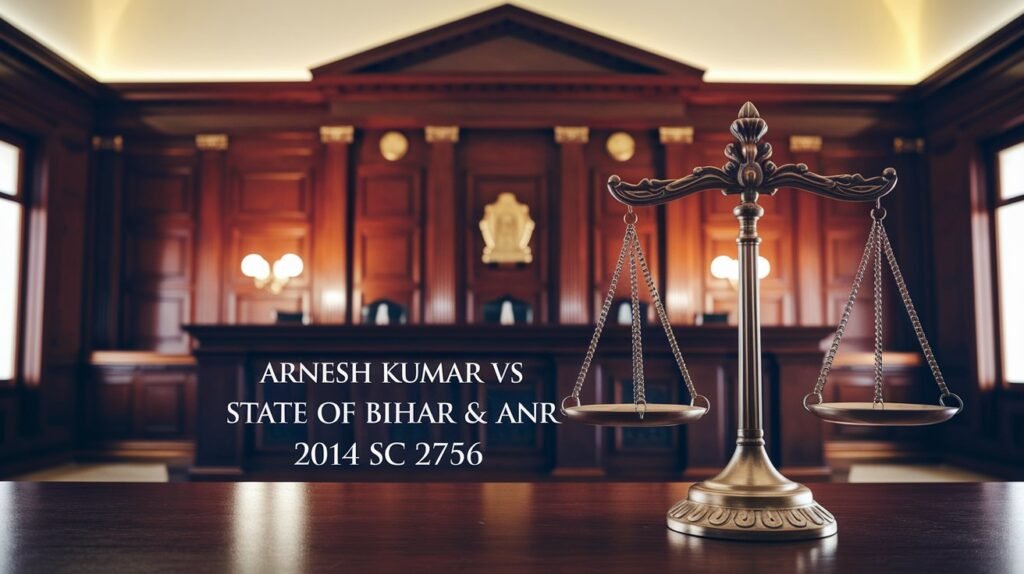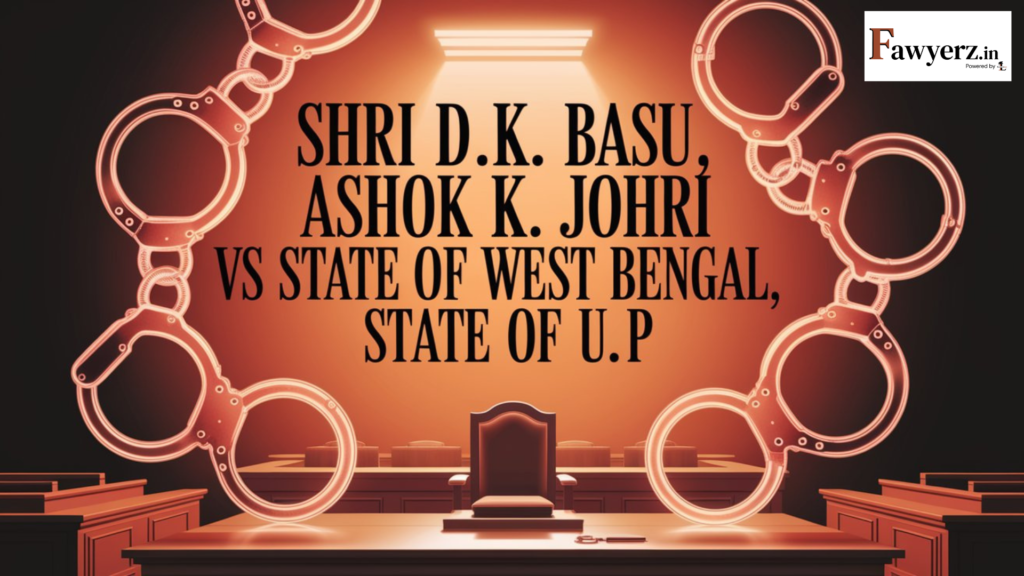Siddharam Satlingappa Mhetre v. State of Maharashtra 2011(Case Summary)
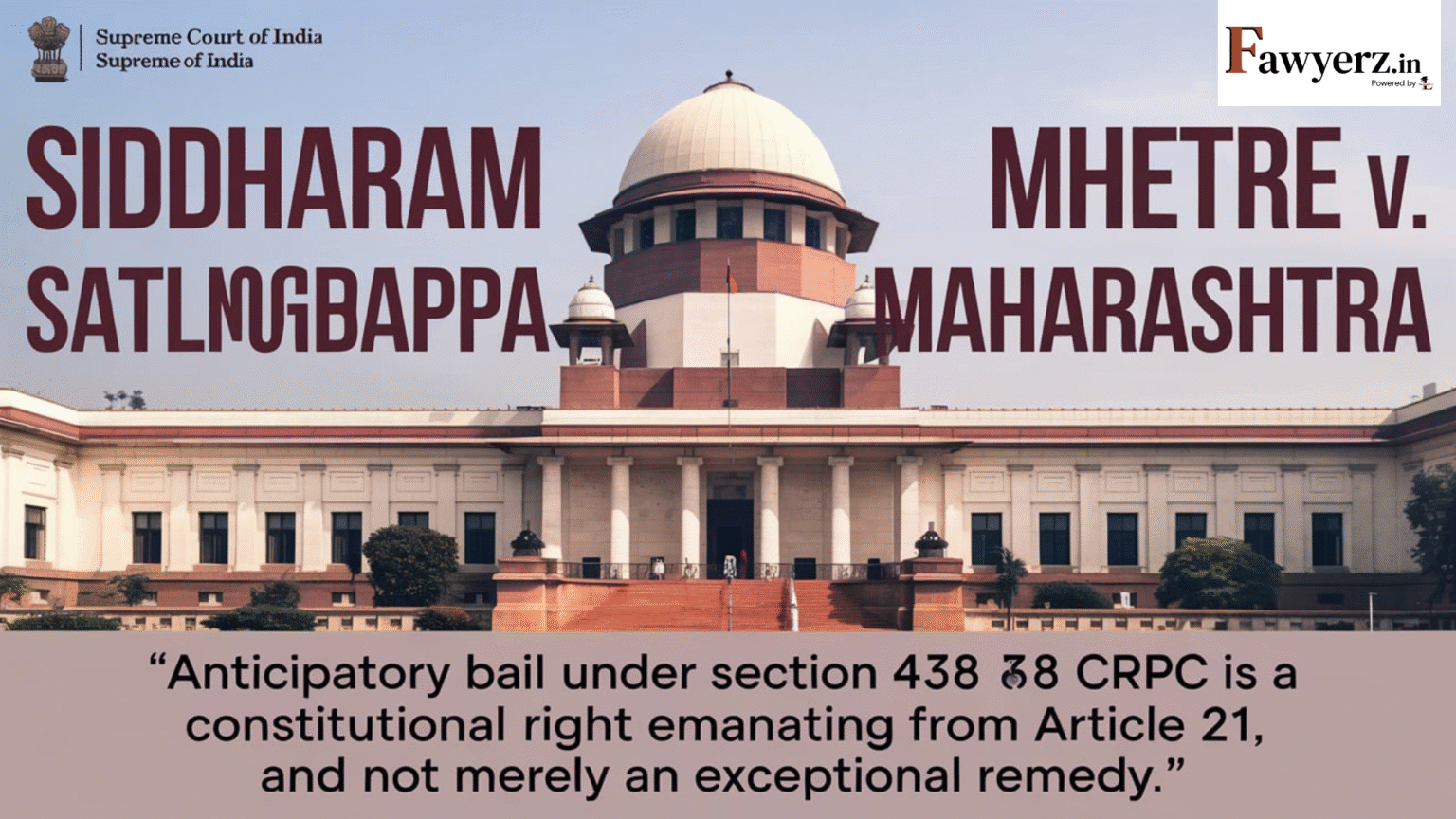
This landmark judgment reaffirmed that anticipatory bail under Section 438 CrPC is a constitutional right emanating from Article 21, and not merely an exceptional remedy. The Supreme Court clarified that, in the absence of specific restriction, anticipatory bail continues through the trial unless revoked.
Table of Contents
ToggleFacts of Siddharam Satlingappa Mhetre v. State of Maharashtra
- Siddharam Satlingappa Mhetre, a political figure, applied for anticipatory bail under Section 438 CrPC due to fear of arrest in cases including murder and rioting.
- The Bombay High Court denied anticipatory bail, citing the seriousness of charges.
- Mhetre challenged the order in the Supreme Court, arguing that bail should not automatically terminate upon filing of charge sheet or arrest.
Issues framed
- Whether anticipatory bail under Section 438 CrPC is an extraordinary remedy or part of Article 21?
- Whether anticipatory bail terminates on filing of a chargesheet or upon arrest unless specifically limited?
- Whether the denial of anticipatory bail solely based on serious allegations is permissible?
Subordinate Court Judgment
Bombay High Court refused anticipatory bail based on the gravity of allegations and public perception.
Judgment of Siddharam Satlingappa Mhetre v. State of Maharashtra
The Supreme Court held that anticipatory bail is to be interpreted in light of Article 21, and is not limited only to exceptional cases. The Court pointed out that Section 438 Cr.P.C. does not mention anything about the duration to which a direction for release on bail can be granted Once such a direction of anticipatory bail is executed the concerned court would be fully justified in imposing conditions including direction of joining investigation.
The Court said that restrictions such as conditional surrender or automatic expiry are inconsistent with the legislative intent and constitutional guarantee and stated that the order granting anticipatory bail for a limited duration and thereafter directing the accused to surrender is contrary to the basic intention and spirit of Section 438 Cr.P.C. It is also contrary to Article 21 of the Constitution.
While affirming the broad scope of Section 438, the Court outlined relevant factors courts should consider before granting anticipatory bail:
“The following factors and parameters can be taken into consideration while dealing with the anticipatory bail:
- The nature and gravity of the accusation and the exact role of the accused must be properly comprehended before arrest is made;
- The antecedents of the applicant including the fact as to whether the accused has previously undergone imprisonment on conviction by a Court in respect of any cognizable offence;
iii. The possibility of the applicant to flee from justice;
- The possibility of the accused’s likelihood to repeat similar or the other offences.
- Where the accusations have been made only with the object of injuring or humiliating the applicant by arresting him or her.
- Impact of grant of anticipatory bail particularly in cases of large magnitude affecting a very large number of people.
vii. The courts must evaluate the entire available material against the accused very carefully. The court must also clearly comprehend the exact role of the accused in the case. The cases in which accused is implicated with the help of Sections 34 and 149 of the Indian Penal Code, the court should consider with even greater care and caution because over implication in the cases is a matter of common knowledge and concern;
viii. While considering the prayer for grant of anticipatory bail, a balance has to be struck between two factors namely, no prejudice should be caused to the free, fair and full investigation and there should be prevention of harassment, humiliation and unjustified detention of the accused;
- The court to consider reasonable apprehension of tampering of the witness or apprehension of threat to the complainant;
- Frivolity in prosecution should always be considered and it is only the element of genuineness that shall have to be considered in the matter of grant of bail and in the event of there being some doubt as to the genuineness of the prosecution, in the normal course of events, the accused is entitled to an order of bail.”
In conclusion, the Supreme Court allowed Mhetre’s appeal, directing that his anticipatory bail be maintained throughout the trial. The judgment underscores that limitations on anticipatory bail must be based on reasoned judicial conditions, not automatic or rigid rules—and reaffirms that personal liberty cannot be curtailed by mechanical application of conditions.


